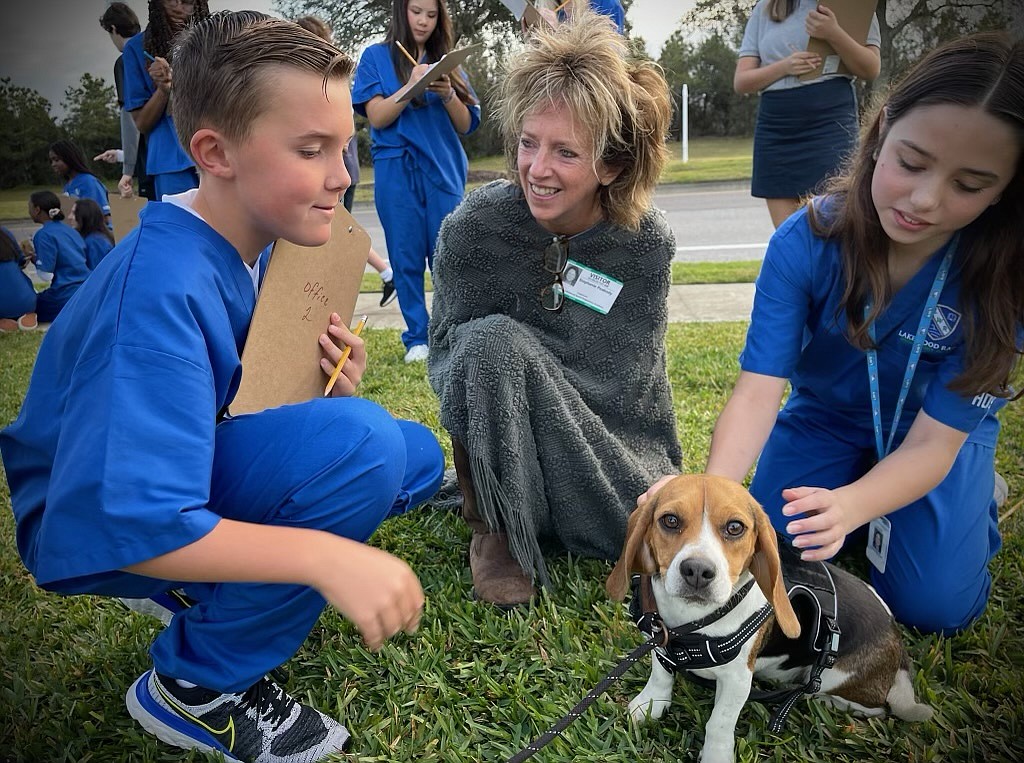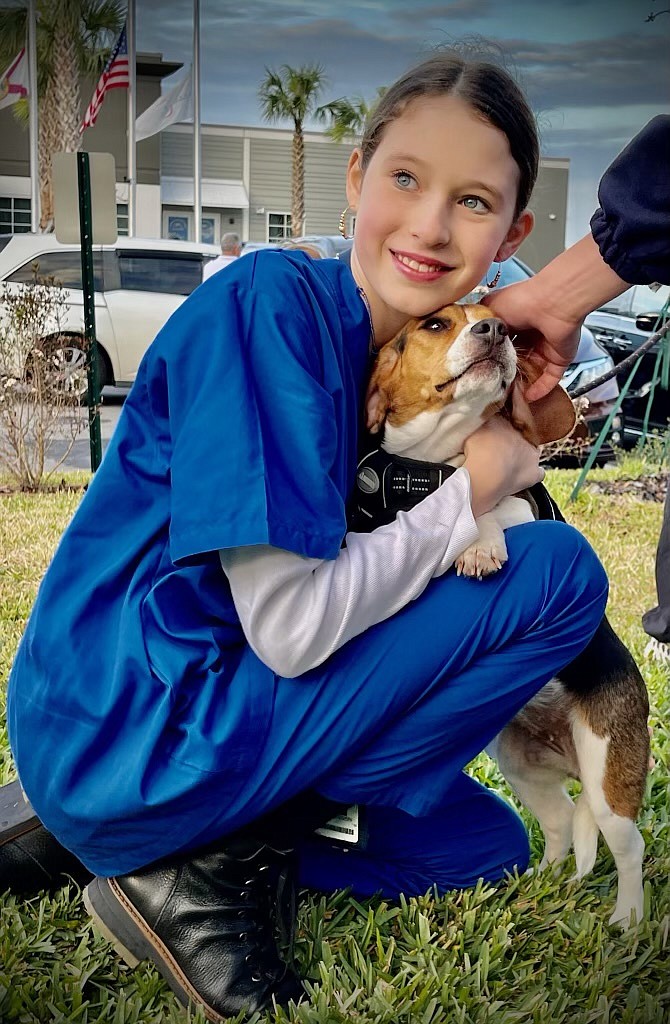- May 3, 2024
-
-
Loading

Loading

Throughout the day at Lakewood Ranch Preparatory Academy, students have the opportunity to take a break from their studies to walk, choose a more comfortable seat, or even go outside with their classmates to continue a lesson.
The change in scenery and flexible seating options can help students refocus while addressing their brain health.
From the small, everyday choices to the Lunch and Learn programs that teach students about various health topics, Lakewood Ranch Preparatory Academy students are learning more about brain health through the Schools for Brain Health Program.

As a wellness, innovation, science and health model school, Bradley Warren, the lower school principal at Lakewood Ranch Prep, said the partnership with the Brian Health Initiative was serendipitous.
“It meshed so perfectly with our vision of helping not just the whole child, but the whole community,” he said. “We didn’t look at ourselves as if we were going to open a school and do just what’s best for the kids. We want to do what’s best for the entire family and the whole community.”
Through the partnership, the Brain Health Initiative and Brain Health Scholars are helping students learn more about brain health protective and risk factors, such as stress resilience, nutrition, sleep, general health and more.
The focus for Schools for Brain Health at Lakewood Ranch Preparatory Academy starts with the freshmen on campus. As the school adds more grades, more students will be involved in the program.
“What we’re developing is an entire community for brain health,” said Stephanie Peabody, the founder and executive director of the Brain Health Initiative. “We are creating a continuum of care that begins before birth and follows an individual across the lifespan. The opportunity to create an education culture that can be a prototype that can be modeled and replicated anywhere is just extraordinary.”
With students spending more than 15,000 hours in school before they graduate high school, Peabody said it’s imperative for students to learn about brain health at a young age.
She said Schools for Brain Health will help the Brain Health Initiative see how effective the initiatives are in promoting a brain healthy lifestyle. The hope is students will share what they learn with their families, ultimately impacting the community at-large.

“What we’re doing is creating a culture that proudly promotes and protects brain health protective factors, a brain healthy lifestyle that identifies the earliest markers of potential concern,” Peabody said. “It takes everyone seeing through a common lens using a common language and having evidence-based responses.”
The Brain Health Initiative worked with the school to survey freshmen and their parents, teachers, staff, and administrators to compile a needs analysis showing their perceptions and priorities related to brain health.
Peabody said the top priorities were related to physical activity, nutrition and cognitive stimulation. Now Schools for Brain Health are working on potential projects to address those priorities.
As the school was being constructed, Peabody worked with Warren and Cheryl Cendan, the principal of the upper school, to incorporate brain healthy aspects into an educational environment. For example, each learning village in the school has desks at various heights and flexible seating options for students to be able to choose what works best for them.
Schools for Brain Health also incorporates monthly Lunch and Learns where experts or Brain Health Scholars present on a variety of topics including nutrition, sleep, stress management and time management.
Cendan said she’s seen students incorporating the tips they’ve learned during the Lunch and Learns into their every day lives.
She said students are more compassionate and sensitive when talking to each other, they think about how they interact with each other, they’re using devices to help manage their time, they reach out to staff for opportunities to improve their academics and more.

Schools for Brain Health is finding other ways to engage students in lessons on brain health. For example, scent detection research dogs that are being trained to support safety and provide emotional comfort in schools were brought to campus Jan. 25. The dogs could provide therapeutic assistance for students experiencing anxiety, depression and increased stress levels.
Students in the school’s Health Occupations Students of America chapter worked on observational data collection by collecting data on how students, staff and families interacted with the dogs.
“It was a good learning experience for them because I do have sixth graders and freshmen that are in the club, but they think of just strictly the health; they don’t understand the research and the science behind the scenes to the medicine,” Cendan said. “Now they’re creating hypotheses from the data to present a compelling argument as to why we need dogs to interact with our students on campus.”